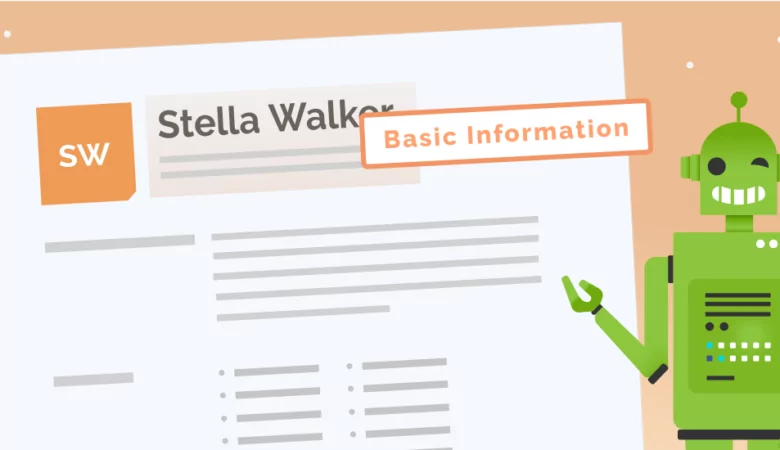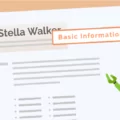HVAC contractors need to have strong skills and very specialized knowledge. Check out our resume tips to learn how you can present your skills more effectively.

Stunning HVAC Resume Examples for You to Use This Year
HVAC Resume Examples
As an HVAC service technician, you need to show off the skills you have in understanding HVAC systems and managing them effectively. The skills that HVAC experts have are extremely varied and excelling in your field requires you to not only have these skills but also show them off. Here’s how you can use an HVAC technician resume example to build your resume.

What To Highlight in an HVAC Resume
The term, HVAC, spans many different system components. If you’re applying to be an HVAC service technician, you need to emphasize which HVAC units you’re best at. Here are a few to include:
- Ventilation systems
- Air conditioning systems/Air conditioning units
- Boilers
- Compressors
- Ductwork
- Heat pumps
- Refrigeration systems
- HVAC control systems
- Thermostats
Structure of an HVAC Resume
Before you write any resume, you must choose your resume format. Your options are chronological, functional and combination. Once you know what resume format you want, you can use the ResumeNerd resume builder and these resume sections to write the best resume for your needs as an HVAC expert.
Header
Your header should include your contact information. This usually includes your phone number, email address, and professional social media links like your LinkedIn profile.
Resume summary or objective
The two- to three-sentence paragraph at the top of your resume is your resume summary or objective. The resume summary is better for people with a significant amount of experience. It goes over your existing achievements and experience. The resume objective is better for those without much experience. It focuses on your skills and education, ending with an objective you want to accomplish.
Skills
Your skills section needs to include hard skills and soft skills to encompass all the skills you’ll utilize with HVAC systems. Here are a few bullet points you can include:
- General work with HVAC equipment
- Diagnosing and troubleshooting problems
- Providing preventative maintenance
- Reading blueprints and schematics
- Customer satisfaction
- Customer service skills
- Knowledge of EPA guidelines
- Making service calls
- Taking work orders
- Working with commercial buildings
- Running diagnostics
- Maintaining functionality
- Using hand tools
- Testing equipment
- Avoiding malfunctions
- Time management skills
Read through the job description before you start writing your skills list and select key terms that the recruiter used so that you can include them in your resume. This will make you look like the perfect candidate!
Work experience
You can include up to 10 years of experience in your work experience section. For a job search, you want to include all recent experience that could be relevant. However, if you have previous non-relevant experience, such as experience in the sales industry, you might want to put this in your LinkedIn instead.
Education
If you don’t have any college experience, you can put your high school experience in your education section. You can also list certifications you have acquired, such as your HVAC certification.
Do’s and Don’ts for an HVAC Resume
When writing your HVAC resume, keep these tips in mind:
Do:
- Check on resume samples before you start writing your resume. With the variety of resume examples at ResumeNerd, you can better understand how to structure your resume.
- Use a professional resume layout. You can use resume templates from ResumeNerd to get a professional design that will impress a potential employer.
- Include jobs that lead naturally up to your current job. Include past entry-level jobs if you’re applying for a higher-level job, for example.
Don’t:
- Use general terms to describe your experience. Be as specific as possible in discussing your job title and your skills.
- Include dozens of skills on your resume. Most resumes will benefit from 8-12 skills.
- Exclude college education from your resume. Even if you’re not using your degree for the same job other people are, it can still show dedication.
FAQ: HVAC Resumes
It’s best to include a cover letter for all job applications, regardless of whether the application states that you should include a cover letter. Especially when it comes to an HVAC technician resume, a cover letter is a great way to discuss in-depth the information you put in your resume. Plus, you can use the ResumeNerd cover letter builder to make it even easier to create a cover letter.
The good news is that many people writing HVAC resumes don’t have much formal experience. If you don’t have experience as a formal HVAC installer, you can include other types of experience, such as internship experience, HVAC certification and mechanical engineering. This indicates that you have the technical skills necessary to succeed as an HVAC installer.
Before you apply for a new job, you must change your resume slightly to adapt it to a new job listing. Read through the job listing, see what they’re looking for and then reflect those keywords in your resume. This will help you catch the eye of a hiring manager, who has listed exactly what they’re looking for in the job description.








